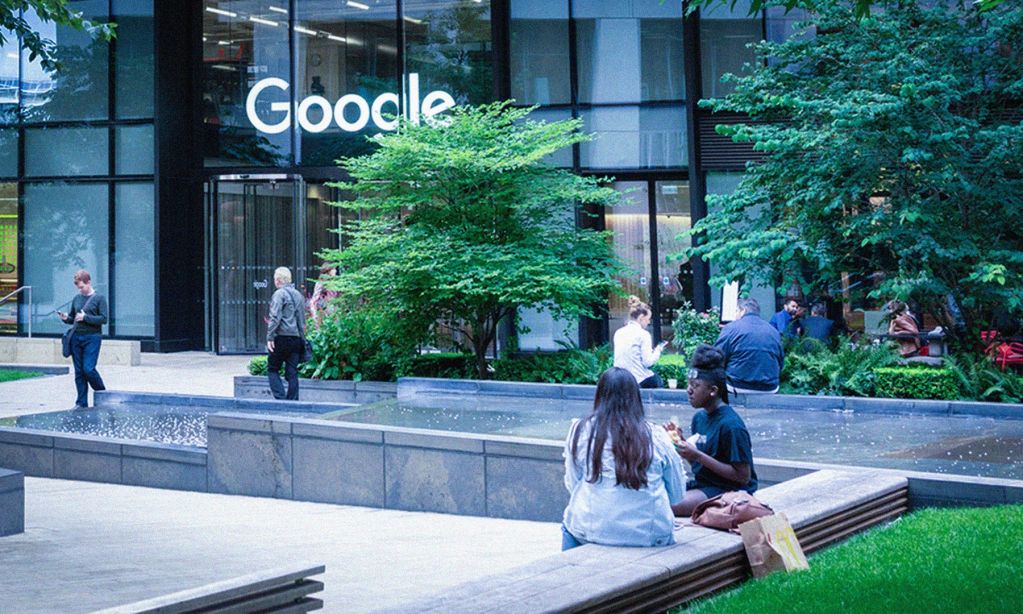#Blocksidewalk was a grassroots campaign that formed in 2019 after a Toronto Star article reported that Google-subsidiary Sidewalk Labs was after hundreds of acres of publicly owned land along Toronto’s eastern waterfront.
The company's goal? To build a “smart city”—a sensor-laden test bed to extract behavioural data from Torontonians.
Sidewalk Labs’ initial proposal was to collect data and leverage that data to build a 12-acre, near carbon-neutral neighbourhood called Quayside, using technology in ways that addressed pressing urban issues, like climate change, lack of affordable housing and traffic.
What possibly was not to like about this?
Being an Alphabet-owned Google subsidiary, Sidewalk Labs also came with lots of money—a potential antidote to the city’s lack of resources and lack of provincial financial support for housing and transit.
Welcoming a vendor that has innovative ideas to build affordable, sustainable and equitable neighbourhoods seemed like something no one should say no to.
Initially, not many people did. While there were some critics from the start, it took the Toronto Star piece to galvanize opposition.
From today’s vantage point, it seems that a campaign that calls itself #Blocksomething would immediately be labelled NIMBY (not in my backyard).
Current debates on housing, for instance, are dominated by market urbanists, pop economists, tech bros, and libertarians busy developing a critique of planning that focuses on removing “red tape” so that the development industry, its financiers and downstream speculators can build housing, unencumbered.
The YIMBY (yes in my backyard) movement is backed by the development industry, conservative lobbyists, newspaper columnists, right-wing strategists and politicians.
In Ontario, this nexus is perhaps best exemplified by now disgraced former Minister of Housing Steve Clark, who called Ontario’s housing crisis BANANAS (build absolutely nothing anywhere near anything), as part of the provincial government’s rationale to open up Ontario’s Greenbelt—using the housing crisis as cover.
Opposing a development project that promises to bring U.S. dollars and would build affordable housing and improve traffic would almost be unthinkable today. Calling it #Blocksomething head-on is probably not advisable.
However, #Blocksidewalk was successful because Sidewalk Labs made several serious mistakes that would cost them dearly.
First, they came to Toronto by winning a request for proposals (RFP) that was rigged by Waterfront Toronto to get the inside track. That move didn’t sit well, and even Ontario’s auditor general wasn’t shy to say that what Waterfront Toronto did was highly unusual and that the agency should slow down its project with the Google-affiliate.
Second, the way Waterfront Toronto awarded Sidewalk Labs the eventual deal led to the highly publicized resignation of a Waterfront Toronto board member, a well-respected developer who alleged that Waterfront Toronto rushed the process without due diligence to meet a deadline for a pre-arranged press conference announcing the deal with the prime minister, Ontario’s premier and Toronto’s mayor.
Third, when news broke that Sidewalk Labs was using its fudged 12-acre Quayside deal as a launching pad to dispossess Toronto of hundreds of acres of waterfront land, it galvanized a range of oppositional forces under the #Blocksidewalk banner.
Trust in the company either didn’t exist or was waning quickly.
The fact that we were dealing with Google didn’t help build trust, even when Sidewalk Labs tried to distance itself from its relationship with the internet search engine that tracks our every online movement, mines our data, and sells it to advertisers.
The timely publication of Shoshana Zuboff’s book Surveillance Capitalism and the general tech backlash following the Cambridge Analytica scandal (where the company took personal data from millions of unsuspecting Facebook users) added to the mistrust.
Realizing that several companies Sidewalk Labs created in Canada were headquartered, like Google, in Mountainview, California and that Sidewalk Labs’ CEO Dan Doctoroff took his marching orders directly from there didn’t help Sidewalk Labs’ proclamation of independence from Google.
By 2019, big tech’s shiny veneer had worn off.
The central idea behind Sidewalk Labs’ project in Toronto was to collect data from people’s movements and behaviour, and, the company claimed, to leverage that data to create better neighbourhoods and cities.
In many ways, this data-driven approach would de-politize the planning and regulatory process by privatizing governance functions and replacing democratic oversight with “consumer signals” that would be collected day in and day out.
That data would be used to change the functions of streets and public spaces and to optimize indoor spaces in real time—innovations that could be implemented and experimented on in Toronto and be exported to other cities.
Anyone who would live, work, or visit Sidewalk Labs’ neighbourhood would have their data collected, stored and monetized downstream.
As opposition built, the Canadian Civil Liberties Association sued Waterfront Toronto and all three levels of government for failing to protect our privacy.
Meanwhile, Sidewalk Labs also asked all levels of government to grant the company special powers over the waterfront through a “public administrator” that would have authority over housing and transit—taking control out of the hands of government.
That this neoliberal techno-utopia could quickly dissolve into a dystopian future was clear to critics, but Sidewalk Labs had a lot of fans, on and off their payroll, in Toronto.
It required #Blocksidewalk members to organize around even progressive organizations that usually would have been critical of privatization schemes.
That this techno-utopia could quickly become a nightmare became clear when the Globe and Mail reported on the infamous “yellow book.”
There had been rumours that Sidewalk Labs created a playbook of how they would want to operate a city if someone would give them one and put them in charge.
The yellow book imagined areas that the company could control, like a Disney Land.
It aimed for exceptions to government regulations, such as procurement and density rules.
It wanted to grant the company taxation powers, including property taxes, diverting it from municipal to private sector coffers.
It would control schools, transit, private road infrastructure, public safety, criminal justice, etc.
There were musings about how data collection could be used by law enforcement.
Sidewalk Labs tried to distance itself from the revelations of the yellow book, saying that this had nothing to do with what they had in mind for Toronto’s test bed. But trust eroded even further.
Between the land grab revelations reported by the Toronto Star and the yellow book discoveries reported by The Globe and Mail, Sidewalk Labs’ dystopian vision of the future could no longer be hidden behind claims of carbon-neutral timber buildings, waste robots, heated sidewalks, affordable housing micro units, dynamic curbs, a nearly fully automated factory for cross-laminated timber, etc.
Still, it wasn’t easy to convince decision-makers of the dangers of allowing a company access to our data, public land and public subsidies. But, in the end, #Blocksidewalk and its allies were successful. Sidewalk Labs used the COVID-19 pandemic as a face-saving cover to leave Toronto.
In today’s context, with a nascent right-wing YIMBY movement, opposing a large private sector infrastructure company that comes with the promise of delivering affordable housing, transit, and all sorts of urban innovations seems even more challenging—but not impossible.







